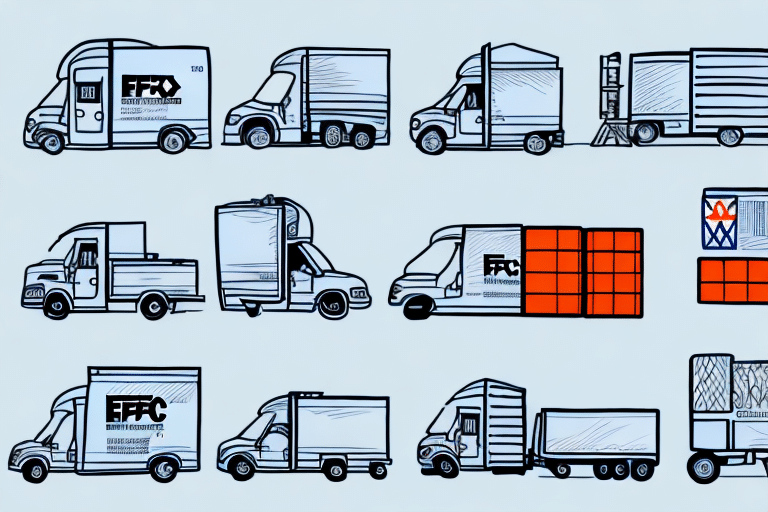Understanding Overnight Delivery Services
Overnight delivery services enable businesses and individuals to send packages and documents that must arrive at their destination the very next day. This service is crucial for time-sensitive or urgent shipments, ensuring that critical items reach their recipients promptly. Companies like FedEx and UPS are leaders in providing these expedited delivery solutions, each offering unique features and capabilities.
When opting for overnight delivery, it's essential to consider factors such as cutoff times for package pickup and delivery, which can vary between providers and locations. For instance, FedEx typically has a cutoff time around 6 PM, whereas UPS cutoff times may differ based on regional operations. Additionally, overnight services are generally more expensive than standard shipping options, so it's important to balance cost against the urgency of your shipment. Utilizing tracking services and ensuring that someone is available to receive the package at the destination are also critical to avoid missed deliveries, which can incur additional fees and delays.
Service Comparison: FedEx vs. UPS
History and Background
FedEx was founded in 1971, initially operating with a small fleet of aircraft to transport packages between cities. Over the decades, FedEx has expanded its services globally, focusing heavily on air transportation to ensure swift deliveries. On the other hand, UPS was established earlier, in 1907, starting as a bicycle delivery service in Seattle. UPS has since grown into a global logistics powerhouse, utilizing a vast network of ground vehicles and a hub-and-spoke system to manage package deliveries efficiently.
Pricing Structures
Both FedEx and UPS offer a variety of pricing options tailored to different shipping needs. Pricing is influenced by factors such as package weight, dimensions, destination, and delivery speed. FedEx Pricing allows customers to calculate shipping costs online, offering discounts for businesses and volume shipments. Similarly, UPS Pricing provides detailed rate calculators and volume discounts. It's crucial to compare these pricing structures carefully to determine which provider offers the best value based on your specific requirements.
Shipping Speeds
Both FedEx and UPS offer overnight delivery options that guarantee next-day delivery. However, there can be slight variations in transit times depending on the specific service selected and the origin and destination locations. For example, FedEx First Overnight typically guarantees delivery by 8:00 AM the next business day, while UPS Next Day Air Early ensures delivery by 8:00 AM as well. Evaluating the exact delivery commitments and any regional differences is important when selecting a provider.
Tracking and Monitoring
Real-time tracking is a standard feature offered by both FedEx and UPS, allowing customers to monitor their packages throughout the delivery process. FedEx provides a feature called Delivery Manager, which enables users to customize delivery preferences, such as requesting specific delivery times or locations. UPS offers My Choice, a similar service that allows for delivery rescheduling, package rerouting, and authorization of package drop-offs. Both platforms also offer mobile apps and SMS notifications to keep customers informed on the go.
Customer Service
In the event of issues or complaints, effective customer service is paramount. Both FedEx and UPS provide support through phone, email, and online chat. FedEx has a dedicated team for resolving customer complaints, ensuring that issues are addressed promptly. UPS employs a Service Recovery program designed to quickly resolve problems and prevent future occurrences. Both companies also offer compensation for lost or damaged packages, with specific terms and conditions outlined in their service agreements.
Coverage and Availability
FedEx and UPS boast extensive global networks, offering broad coverage across various regions. However, service availability can vary based on specific locations, particularly in remote or hard-to-reach areas. It's advisable to verify that both providers can deliver to your intended destination before making a decision. Both companies continuously expand their networks, but local limitations may still apply, necessitating the exploration of alternative shipping options or local courier services in some cases.
International Shipping Options
For international shipments, FedEx and UPS provide comprehensive services that include air and ground transportation, customs clearance, and regulatory compliance support. FedEx emphasizes air transportation, which can offer faster delivery times but potentially higher costs. UPS leverages its extensive ground network, particularly in Europe and Asia, which can be more cost-effective for certain routes. Both carriers offer detailed tracking and visibility for international shipments, though the level of detail may vary.
Sustainability Efforts
Environmental sustainability is increasingly important in logistics. Both FedEx and UPS have implemented initiatives to reduce their carbon footprints. FedEx's Reduce, Replace, Revolutionize program focuses on minimizing waste and enhancing recycling efforts. UPS's We Love Logistics program emphasizes sustainability through fuel-efficient vehicles and optimized delivery routes. These efforts not only benefit the environment but also enhance operational efficiency and cost-effectiveness.
Insurance and Packaging Options
When shipping valuable or fragile items, insurance and proper packaging are crucial. Both companies offer insurance options to protect packages against damage or loss. FedEx provides various insurance levels, allowing customers to select coverage based on the value of their shipments. UPS offers similar insurance options, known as declared value coverage. Additionally, both FedEx and UPS offer specialized packaging materials and handling services designed to secure fragile items during transit, ensuring they arrive safely at their destination.
Choosing the Right Provider for Your Needs
Selecting between FedEx and UPS depends on multiple factors, including pricing, shipping speeds, tracking capabilities, customer service, coverage, and specific shipping requirements. Businesses should evaluate their unique needs, such as the frequency of shipments, package destinations, and budget constraints, to determine which provider aligns best with their operational goals. Additionally, considering factors like sustainability efforts and insurance options can help businesses make informed decisions that align with their values and risk management strategies.
Conclusion
Both FedEx and UPS offer robust overnight delivery services that cater to a wide range of shipping needs. By thoroughly comparing their offerings across various dimensions—such as service speed, pricing, tracking, customer support, and sustainability efforts—customers can make informed decisions that best suit their individual or business requirements. Ensuring that you choose the right provider will lead to more efficient and reliable deliveries, ultimately supporting your operational success.




















